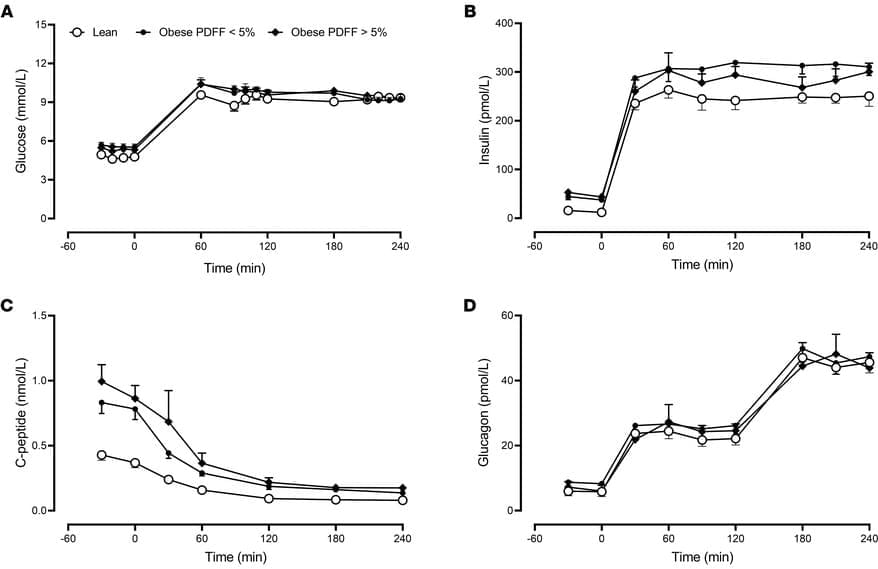SQC produces nature’s perfect qubits: phosphorus atoms precision placed in pure silicon, the 14|15 qubit platform. We have the highest precision manufacturing practice on the planet, operating at 0.13 nanometer accuracy, in-house.


Fermilab and CERN unveil upgraded quantum sensors to enhance particle detection for future collider experiments.

Scientists at Rice University have produced the first full, dye-free molecular atlas of an Alzheimer’s brain. By combining laser-based imaging with machine learning, they uncovered chemical changes that spread unevenly across the brain and extend beyond amyloid plaques. Key memory regions showed major shifts in cholesterol and energy-related molecules. The findings hint that Alzheimer’s is a whole-brain metabolic disruption—not just a protein problem.
What if AI made your paycheck optional? Vinod Khosla, one of the world’s greatest venture capitalists and an early backer of AI, believes the technology will take over 80% of labor, freeing humans to live on passion instead.
His track record backs up the boldness, as early bets on OpenAI, DoorDash, Instacart, and Square have made him one of the most consequential investors of our time.
In this episode of Titans, Khosla sits down with Fortune Editor-in-Chief Alyson Shontell to unpack his abundant vision for the AI future, what government policy should tackle for a more equitable 2040, and what the U.S. needs to do to win the global AI race.

Pain is an unpleasant sensory and emotional experience associated with actual or potential tissue damage. Chronic pain, with a prevalence of 20–30% is the major cause of human suffering worldwide, because effective, specific and safe therapies have yet to be developed. It is unevenly distributed among sexes, with women experiencing more pain and suffering. Chronic pain can be anatomically and phenomenologically dissected into three separable but interacting pathways, a lateral ‘painfulness’ pathway, a medial ‘suffering’ pathway and a descending pain inhibitory pathway. One may have pain(fullness) without suffering and suffering without pain(fullness). Pain sensation leads to suffering via a cognitive, emotional and autonomic processing, and is expressed as anger, fear, frustration, anxiety and depression.
Caltech scientists have developed a method that detects tiny, imperceptible movements at the surface of objects to reveal details about what lies beneath. By analyzing the physics of waves traveling across the surface of an object—whether that be a manufactured product or the human body—the new technique can determine both the stiffness and thickness of the underlying material or tissue. This lays the groundwork for the project’s ultimate goal of enabling inexpensive, at-home health monitoring using little more than a smartphone camera.
“There is information scattered all around us in plain sight that we just haven’t learned to tap into. Our work is trying to leverage that information to recover material properties from inside objects by studying tiny movements on the surface,” says Katie L. Bouman, professor of computing and mathematical sciences, electrical engineering, and astronomy at Caltech and both a Rosenberg Scholar and a Heritage Medical Research Institute (HMRI) Investigator.
Bouman and her colleagues from Caltech presented the technique, called visual surface wave elastography, and its medical applications in a paper presented at the International Conference on Computer Vision in Honolulu last fall. The lead authors are Alexander C. Ogren, Ph.D., and Berthy T. Feng, Ph.D., who completed the work while at Caltech.

The brain relies on real-time delivery of oxygen and nutrients through its microvasculature, which threads through neural tissue like electrical wires. While modern imaging technologies allow researchers to follow the activity of individual neurons in the brain, they are not yet advanced enough to dissect the microvascular function at a comparable spatial scale. This gap hinders our understanding of cerebral small vessel disease and its contributions to cognitive impairment and dementia.
To address this challenge, a team of researchers at Washington University in St. Louis and Northwestern University, led by Song Hu, professor of biomedical engineering in the McKelvey School of Engineering, have developed super-resolution functional photoacoustic microscopy (SR-fPAM).
By tracking the movement and oxygenation-dependent color change of red blood cells, SR-fPAM allows researchers to image blood flow and oxygenation at single-cell resolution in the mouse brain, which bridges a critical gap in functional microvascular imaging and could provide new insight into microvascular health and disease, such as stroke, vascular dementia and Alzheimer’s disease.


Here, Adrian Vella & team show hepatic resistance to glucagon’s effects on amino acid catabolism is not a significant factor in postprandial metabolism, regardless of obesity or hepatic steatosis: type2diabetes MASH Glucagon.
Address correspondence to: Adrian Vella, Endocrine Research Unit, Mayo Clinic College of Medicine, 200 First St. SW, 5–194 Joseph, Rochester, Minnesota 55,905, USA. Phone: 507.255.6515; Email: [email protected].
Find articles by Christie, H. in: | Google Scholar | 
1Division of Endocrinology, Diabetes, Metabolism and Nutrition, Mayo Clinic, Rochester, Minnesota, USA.

Imagine getting a nasal spray in the fall months that protects you from all respiratory viruses, including COVID-19, influenza, respiratory syncytial virus, and the common cold, as well as bacterial pneumonia and early spring allergens.
As vital as vaccines are, they can be frustratingly selective about their targets.
Scientists from institutions across the US have now developed a strikingly “universal” vaccine, which has protected mice against a range of viruses, bacteria, and even allergies.
The new GLA-3M-052-LS+OVA vaccine can be delivered as a nasal spray. Three doses protected mice from infection from SARS-CoV-2 and other coronaviruses for three months, and reduced the viral load in their lungs 700-fold, compared to unvaccinated mice.